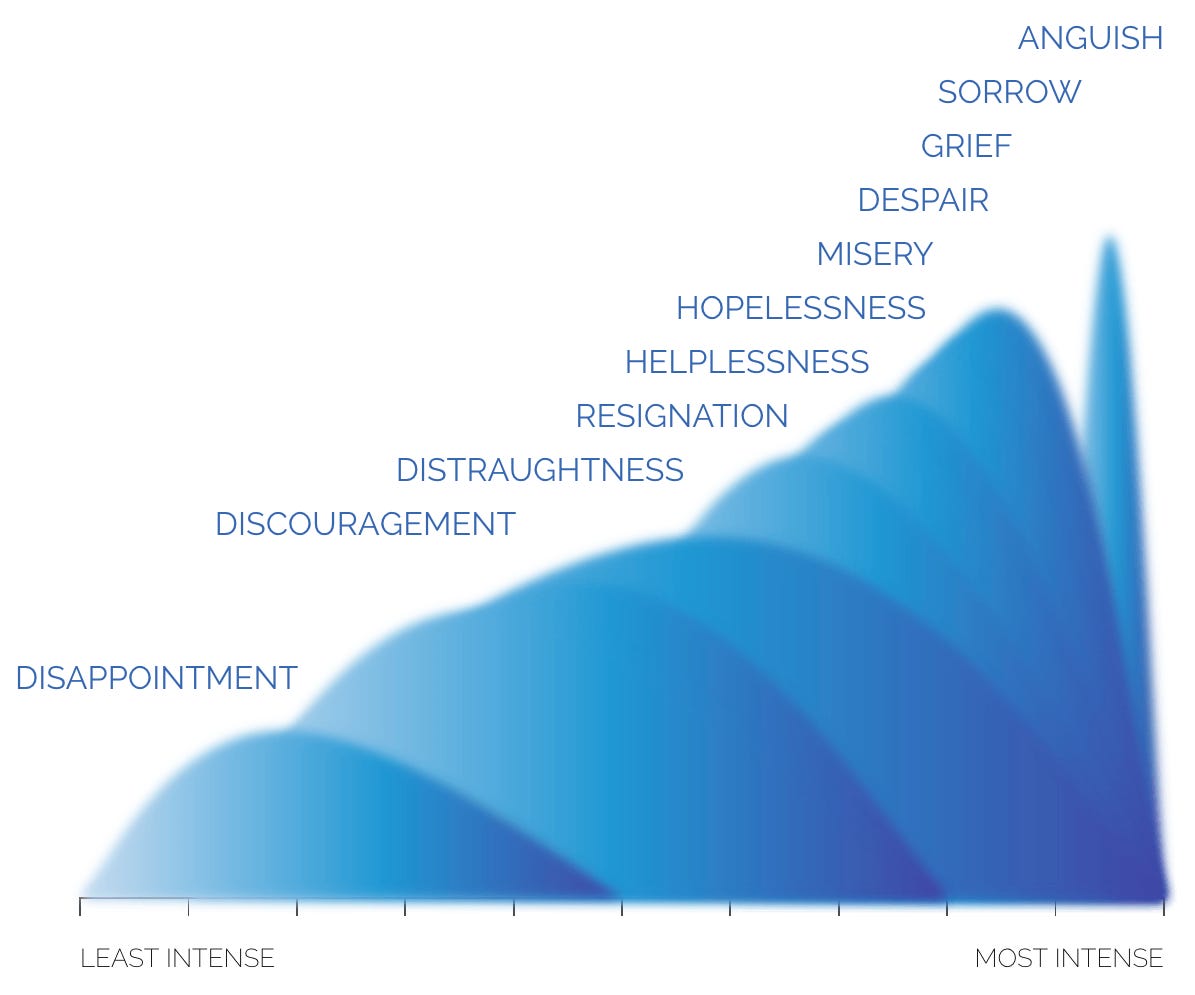Let's normalise being unhappy without thinking it’s wrong. Three ways to embrace that.

I’ve recently published another story from my travels in Indonesia. 💀 “The Journey of the Soul” tells the story of elaborate Torayan death rituals. It’s an immersive journey into death and resurrection. It’s one of the most researched topics I’ve done so far. As this was a solo trip, it took me months of diligent planning and logistics (including nine flights within 14 days). The images and practices described can be unsettling for some viewers. Please consider subscribing to the stories list to be notified about my future reportage work.
Now, back to the regular programming 📺
—
It’s a knee-jerk reaction and human empathy to feel for another being when they are sad. It’s a good way for people to support one another and benefit our race. So what’s wrong with that? Nothing. Yet the way we approach empathy could be more healthy.
Let’s dig into sadness. As Paul Ekman1 describes it:
“Sadness describes the range, or family, of emotional states we can experience containing everything from mild disappointment to extreme despair and anguish.”
So what is this 'family of emotional states’?

According to Ekman: “Sadness is a response to loss, and feeling sad allows us to take a timeout and show others that we need support.”
Something I touched upon in one of my previous articles about anger is that there are no wrong or good emotions - just information. What we feel may be pleasant or not, yet that’s another thing. Sadness can mix with other feelings, such as the aforementioned, anger.
As a rule, adults can cope with unpleasant emotions. It does not mean they feel nothing. It means they don’t die from them (contrary to what a toddler might feel and fear) and can manage and go through them.
In practice, most of us did not leave childhood with such skills and are learning them in adulthood through experimentation or therapy. That said, mature and healthy behaviour is respecting other people’s internal processes and paths without trying to fix things for them.
In other words, treat others as adults who can cope, as your responsibility is to convey what you want to say with respect and mindfulness, and it’s out of your control how others will react to it.
How to embrace the above and respect where people are without feeling guilty:
Ask how you can support them in this situation.
Don't give advice. Ask what the person needs right now. When they respond, check with yourself if you agree with providing that. It's okay to say 'no' if you consider the request too much or don't feel like doing it. It's not harsh. It's being authentic and respectful to yourself and the other person.
When you try to fix it for them, you strip them of their process and taking ownership.
Get curious yet not invasive. Some questions to think about:
How can I (or our team) support you in this situation?
What do you need from me (or our team) now?
Do you want to share what you are going through right now to an extent that is comfortable for you?
The goal is to set expectations - not be a therapist or advisor unless you have a relationship with this person outside work or your boundaries (from both sides) allow this.
Let it be and see how it reflects on you
Know that sadness is a valuable feeling, and it’s healthy to be sad. If you feel uncomfortable with other’s sadness - introspect. What are you not comfortable with in particular? What does it tell you about yourself? What should you lean into and inspect?
BONUS
How to deal with a situation when somebody is going through hardship and does not contribute to a team as expected?
Invite them to share with the team.
Ask what do they need from you or the team right now and how much time they would need to sort things out. Don’t skip the latter as it cannot go indefinitely.
Discuss with the team what do they feel comfortable with and if they can handle this.
Follow up mid-way and see if things are changing.
—
🎈Share this post if you think it can help to build healthy relationships.
Paul Ekman is an American psychologist who is a pioneer in the study of emotions and their relation to facial expressions.

